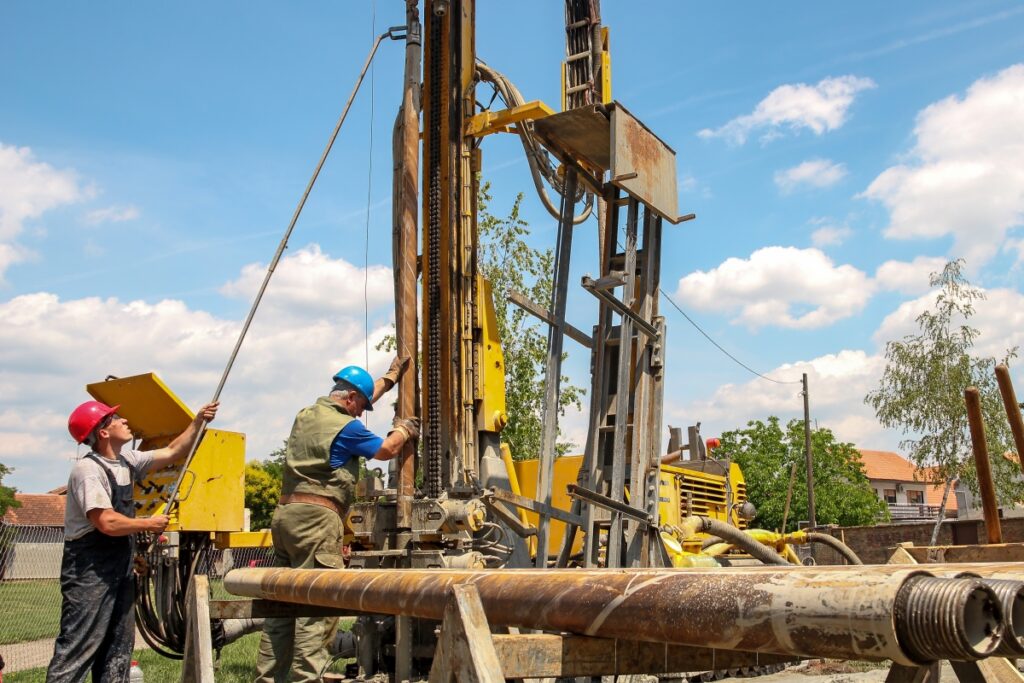When you’re looking for a well‑drilling company, whether for oil, gas or another resource, it can feel like a maze. You want someone who won’t just show up, put in a rig, and hope for the best. You want a partner who does it right. Here are ten traits you should look for in a top‑tier well drilling company.
1.Deep Technical Know‑How
A good company knows more than just how to spin a drill. They understand geology, formation pressure, casing requirements, how drilling fluid behaves. Without that depth, you run the risk of problems later. One research summary notes how well integrity surveillance is a “life‑cycle obligation” from drilling through to abandonment.
So check that your provider doesn’t just own rigs, but has strong drilling engineers and geoscience talent.
2.Track Record and Experience
You’ll feel more comfortable with a firm that’s seen a variety of drilling conditions—hard rock, shale, deep wells, deviated wells. Experience matters because each well brings surprises.
When you talk with a company, ask about their history, what types of wells they’ve drilled, how many feet, what regions.
3.Modern, Well‑Maintained Equipment
Even the best team is limited if the gear is old or poorly maintained. A solid drilling company invests in the right rigs, sensors, directional tools, BHA (bottom‑hole assembly) components.
And yes — newer isn’t always perfect, but well‑maintained definitely is essential.
4.Clear Communication and Transparency
You want to know what’s going on: budget, schedule, risks. A great company will give you regular updates and explain the unknowns.
If they dodge or gloss over questions about what might go wrong, that’s a red flag.
5.Safety‑First Mindset
Drilling is inherently risky. The best companies make safety part of the culture—not just a checklist. They plan for emergencies, train crews, and monitor in‑real‑time where possible. For example, real‑time monitoring of well‑construction data is increasingly flagged as a best‑practice in regulatory guidance.
When you talk to the drilling firm, ask: How often do you train your crews? What’s your incident rate
6.Strong Quality Control & Data Integrity
You should be able to trust the data they give you—wellbore surveys, casing status, drilling fluid records. If you’re investing heavily, you want accuracy.
A firm that fakes data or cuts corners will cost you more in re‑work, lost time or missed targets.
7.Flexibility and Adaptability
Conditions underground change. A good drilling company adapts: maybe the formation is tougher than expected, or fluids differ, or weather delays everything.
The company you pick should show you examples of when they changed the plan and still kept things on track.
8.Environmental Responsibility
Drilling impacts land and water. The best companies recognise this and take steps: minimize surface disruption, manage waste (drilling mud, cuttings), protect groundwater, comply with regulations.
If you’re choosing a partner, ask what steps they’ve taken in recent jobs to reduce environmental impact.
9.Strong Collaboration Skills
Image you’re managing the project; the drilling company is more than a contractor, they’re a partner. They work with you on planning, budgeting, logistics, risk analysis.
When a contractor picks up a drill and just shows up without talking to you ahead of time, that’s not ideal. The good ones ask questions. The best ones suggest improvements.
10.Commitment to Continuous Improvement
Finally, even the best companies recognise there’s always room to improve. Maybe they review each project, analyse what went right and wrong, then apply lessons to the next job.
You can ask: “What changes did you make in the last 2‑3 years based on lessons learned?” If that question makes them pause or give vague answers, that may signal stagnation.
Why these traits matter
When drilling doesn’t go as planned, you pay—extra cost, time delays, safety incidents, lost opportunity. A partner who covers the traits above gives you the greatest chance of smooth operations.
And yes—no company is perfect. Even the best will face unforeseen geology, weather, equipment failures. But you want one with the systems and mindset to handle the surprises.
If you’re interested in how real‑time survey and measurement‑while‑drilling technologies fit into top‑tier performance, you might check out companies that specialise in precision down‑hole tools and remote monitoring—serving operators who demand high accuracy and reliability. For example, see the team at True Shot LLC.
Finding a company with solid tools is one piece; finding one with the ten traits above seals the deal.
Wrapping up
If you keep those ten traits in mind when you’re selecting a drilling partner, you’ll be better positioned to pick one that’s not just “good enough,” but stands out.
Do your homework: talk to their previous clients, ask for data, inspect equipment if you can, and make sure they’re aligned with your project’s goals and values.
In the complex world of well‑drilling, your choice of partner matters more than you might think.






